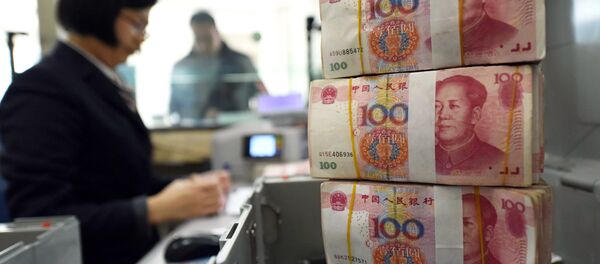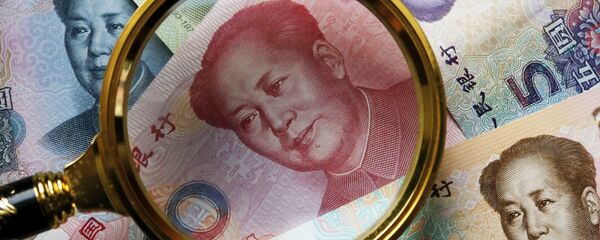Analysts pointed out several factors that have driven the yuan down. One of the most important among them is strengthening the dollar on expectations of a referendum of Britain leaving the European Union. The vote will take place on June 23.
Analysts refrain from predicting the stability of this "British trend" of a weakening yuan. Despite the fact that Britain is highly unlikely to leave the EU risks and expectations would continue to drive the US dollar up and weaken the Chinese currency.
Some analysts see the recent step to devaluate the yuan as part of its correction ahead of the possible interest rate hike by the US Federal Reserve.
In this context, the policy of the Chinese financial authorities looks controversial, Nikita Maslennikov, an analyst at the Institute for Modern Development, told Sputnik Radio.
"Analysts cannot fully understand what Beijing is doing now. On the one hand, the government has repeatedly said it wouldn’t devaluate the currency in order to maintain exports and maintain growth. At the same time, recently the Central Bank has step by step decreased the yuan exchange rate," he pointed out.
The expert suggested that this may be a signal to the Federal Reserve to postpone raising interest rates.
On Tuesday, Morgan Stanley Capital International (MSCI) once again delayed including China’s mainland A-shares into the MSCI Emerging Markets index. By devaluating yuan, the Chinese government has responded to the frustrating move.
The MSCI published its rating at a difficult time of liberalization in the Chinese financial market.
The denial to include China’s A-shares in the MSCI index looks like an attempt by the West to undermine Beijing’s market liberalization efforts, Andrei Volodin, an expert in global economy at the Russian Academy of Sciences, said.
"The economic struggle against China continues. Western rating agencies want to weaken China’s influence on the global economy," he said.




